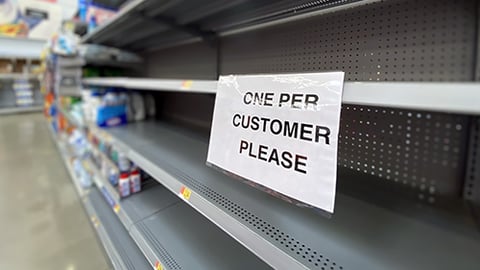Meijer Plans Automated Supply Chain Facility
Food retailers are working hard to keep up with consumer needs, staffing requirements and worker safety during the pandemic, tasks that require endless hours of improvisation. But grocers and other companies cannot ignore the future, either, and the latest example of that comes from Meijer.
The Michigan-based grocery chain is developing a fully automated dry grocery supply chain facility on a 160-acre property adjacent to its existing 1.7 million-square-foot distribution center in Tipp City, Ohio, according to the Dayton Business Journal. Scheduled for completion in August 2022, the $160 million facility “will serve Meijer stores throughout Ohio, Southern Indiana and Northern Kentucky, and it ‘will play a key role in Meijer's continued growth’ in northeast Ohio, according to a memorandum.”
The new facility will result in 65 new jobs, the report said, along with the transfer of 225 existing Meijer distribution center workers. By 2027, the Tripp City facility could employ a total of 1,113 workers.
Meijer is not the only food retailer with big plans for fulfillment, distribution and supply chain enhancements. Germany-based discount grocer Lidl, for instance, recently announced the opening of its 99th store in the U.S., an expansion effort backed by the retailer’s heavy and ongoing investment in building a distribution network along the East Coast. Lidl aims to build a network that can handle distribution operations for at least 1,500 stores, with each distribution center costing some $100 million.
In the broader sense, the pandemic is all but certain to force food retailers to make other decisions about distribution and supply chain processes, and make improvements and revisions accordingly.
As fresh Progressive Grocer research documents, the COVID-19 outbreak has shifted consumer behavior when it comes to brand assortment, and those changes could endure after the pandemic eases, resulting in changes to supply chains. “There’s now a sharpened understanding of the correlation between the costs of offering expansive assortments and the value provided to shoppers who were forced to make new choices,” the report found. “Customers won’t care if they must choose between 50 types of olive oil instead of 100, Spring Meadow or Fresh Scent laundry detergent, a 12- or 18-count pack of toilet paper, or other equally insignificant choices found among center store planograms clogged with items that detract from supply chain efficiency.”
Meijer operates more than 245 supercenters and grocery stores throughout Michigan, Ohio, Indiana, Illinois, Kentucky and Wisconsin. The company is No. 7 on PG's 2019 Super 50 list of the top grocers in the United States.





